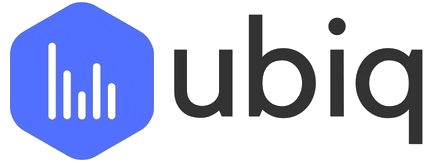Business Intelligence Platforms make it easy to get insights from data and make better decisions. They enable you to analyze, explore, visualize and report data, and share them with others, thereby fostering collaboration. Here are the top 5 Business Intelligence Tools that you can use for your organization.
Best 5 Business Intelligence Software & Tools For Your Business In 2021
Here are the top 5 Business Intelligence Solutions that you can use to grow your business.
1. Ubiq BI

Ubiq BI is a powerful BI software that allows you to easily analyze data from various sources, get insights and share them via interactive dashboards and reports. It is suitable for small-medium businesses.
Ubiq BI works well for business users as well as technical users. You can easily connect to your data source with a couple of clicks, analyze & visualize data using a drag & drop interface, and monitor insights using real-time dashboards.
Ubiq BI provides advanced analytics tools such as dynamic filters, drill-downs, parameterized queries, custom fields, formula expressions, ranking, sorting, aggregations, pivot tables, statistical functions, and more. It even has an SQL query builder for technical users.
It features 35+ visualizations with advanced customizations to help you present insights in a variety of ways. You can also share dashboards & reports via URL, automated email reports and PDF/Image exports.
Ubiq BI also provides robust user management and access control making it suitable for teams – big or small. Ubiq BI is quite affordable with paid plans starting from $29/month, and also offers a free 14-day trial.
Bonus Read : Top 5 Visual SQL Query Builder
2. Tableau
Tableau is a popular data visualization software that allows you to connect to a wide range of data sources and visualize them in a variety of ways. It is available as desktop, on-premise and cloud deployments.
Like Ubiq, it provides a drag and drop interface to visualize and explore data. Tableau focuses more on data visualization and less on dashboards and reporting. It uses the concept workbooks and worksheets, like in, Microsoft Excel. Users can connect to their data and create workbooks of charts and graphs, which can then be published.
Since it is a data visualization software, it lacks some features available in other BI platforms such as dashboard builder, ad-hoc reporting, user management and access control, dashboard sharing, scheduled email reports.
Nevertheless, it is one of the most popular business intelligence tools around.
Bonus Read : Top 5 Business Intelligence Reporting Best Practices
3. Power BI
Power BI is another data visualization software that provides many useful features to visualize and explore data, create dashboards and share them with others.
Since Power BI uses the concept of dashboards, it is easier to use than Tableau. You can visualize data and pin them onto dashboards, which can then be shared with others in multiple ways.
It also provides deep integration with other Microsoft tools like Excel. However, its licensing can be confusing and lead to unexpected costs. For example, you need to buy additional Power BI Pro licenses ($9.99/user/month) just to share a dashboard with others or even receive content from others. Such hurdles can make it difficult to collaborate and work in teams seamlessly, as you need to add/remove users over time.
Nevertheless, if you are a user of other Microsoft products like SQL Server, MS Access, etc. then Power BI will be suitable for you.
Bonus Read : How to Create Business Dashboard
4. Microstrategy
Microstrategy is one of the popular BI solutions from the days of legacy BI when businesses used to manage BI tools on-premise. It is available as desktop, on-premise, mobile applications as well as cloud deployment.
It has been in development for more than 3 decades and has tons of features, most of which are suitable for large enterprises with complex systems and business rules. It is capable of serving almost every industry for that matter.
However, it can be really time-consuming to deploy Microstrategy. Many businesses have had to contact third-party contractors with in-depth Microstrategy knowledge to get started. Also, even after deployment, you may need to train employees to use it proficiently, since it is not a self-service BI tool.
Nevertheless, Microstrategy is one of the most popular business intelligence tools among enterprises who can afford the time and budget for above mentioned shortcomings.
Bonus Read : How to Choose Best Business Intelligence Software
5. TIBCO Spotfire
TIBCO Spotfire is also a well-known data visualization and analytics software that allows you to visualize, explore and analyze data, and share insights with others.
It is a very mature and robust platform capable of handling the most complex business rules. However, this is also its shortcoming, as it can be quite complicated to get started with it.
Users need to have a fair level technical experience to work with TIBCO Spotfire. So it is mostly used by enterprises who have the time & budget for software consultation and training.
Nevertheless, it is chock-full of features such as built-in artificial intelligence, recommendation engine, predictive analytics, location analytics, and even streaming analytics. As a result, it can be expensive for SMBs.
Conclusion
There are many business intelligence tools and most of them offer a free trial. Make sure that you evaluate each BI tool based on your requirements and budget. If you are looking for a powerful business intelligence solution that allows you to easily connect to your data, analyze & visualize it, share insights using interactive dashboards and reports, you can try Ubiq.
Sreeram Sreenivasan is the Founder of Ubiq. He has helped many Fortune 500 companies in the areas of BI & software development.